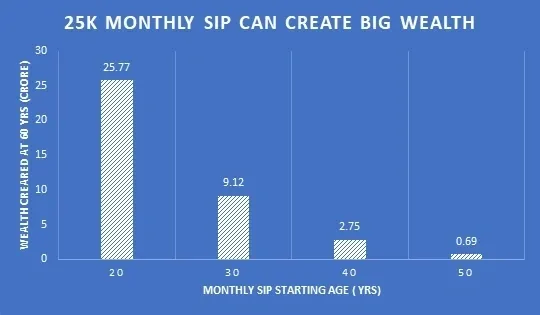Financial independence is the ultimate dream of every person. It seems really cool when you don’t have to depend on anyone to pay your bills. Generally, financial independence is a fruit that ripens when a person starts earning or is an adult. Given the dynamic environment and fast-changing world, financial independence is no longer an adult life dream. The young population can now invest systematically and strategically to achieve financial goals from an early age.
Where does the youth spend money?
A survey conducted by FamPay- India’s first neobank for teenagers revealed that they spend most of their money on food followed by clothes and gadgets. Apple, H&M, Netflix, Nike, cosmetics etc are a few favorites. For this, they mostly borrow money from their parents and only 23% receive pocket money (in cash). The survey also revealed that drawing-room talks with parents are centered only on studies and grades rather than financial literacy. Indian fin tech companies like Walrus, FamPay, Birdfin are now tapping the youth population. These apps help them to track their expenditure and teach money management simultaneously. Money management is the first step towards financial independence. Hence apart from spending money on Netflix and chill youth can also think of investment.
Why financial literacy at an early age is important?
Youth years are the foundation years where children learn life skills. If these years also focus on money management and common mistakes that happen during the same, it will serve them to take big financial decisions in future. This is also the period where youngsters can afford to make mistakes since the figures are not so big. In the long-term, their early investment will support retirement plans, secure the future and improve risk-taking ability. It will also teach them respect for time and money.
For instance, if you start systematic investing of ₹25,000 per month with 12% annual return rate, at the different points in life, you may see the following outcomes:
1. Gen Z or Early Investors: If you start investing at the age of 20yrs, you will accumulate 25 crore rupees by the time you retire at 60yrs.
2. Millennial Investors: If you start investing around 30yrs, you will still accumulate handsome 9 crore rupees when you retire at 60yrs.
3. Gen X investors: If you start at the age of 40yrs, you may accumulate 2.75 crore rupees when you retire at 60yrs.
4. Late Investors: If you start investing at 50yrs, you will accumulate only 70 lakhs rupees by the time you retire at 60yrs.
The compounded wealth created at retirement decreases as the age of investment increases. Systematic Investment Plans inculcate financial discipline and are process-oriented. Hence it is financially wise and important to start investing early.
The graph below shows us a stark difference between wealth compounded when money is invested at 20 versus wealth compounded when money is invested at 50. Investing late in life can cost us more than 24 crore rupees! (that’s a huge number)

How can you begin their investing journey?
1. To begin the investment journey, you need to open a simple mutual fund or de-mat account.
2. Before starting the journey, it is important to note your destination and create the map to reach the destination. Same goes for the investing, you need to make a plan for you as per your needs and risk appetite. You can take help from SEBI registered investment advisers who resonates with your financial goals and needs.
3. After entering the investing world, choosing a correct portfolio becomes bewildering (like a tough math problem). Portfolios are created according to different needs like risks, returns etc. There are more than 2000 mutual fund schemes and 2000 direct stocks and thousands of other fixed income instruments. It is important to identify and invest only after you understand the rewards & risks clearly to avoid any surprise later.
4. Portfolio can be diversified into direct equity, equity mutual funds, fixed/recurring deposits, debt-oriented mutual funds Public Provident Fund (PPF), etc.
5. After selecting an investment plan tracking is also important. A monthly update is more than enough.
Young investors also have to keep in mind that stock market is a place that transfers money from the impatient to the patient. Fluctuation in the market should not result in panic selling or buying. Investing in the stock market demands discipline and a long-term vision rather than quick gains. But this does not mean we stop re-balancing and restructuring the portfolio as time passes. A balance between the two is called for.
Start early and one day your annual investment income will be more than your annual salary income making you truly financially free.

